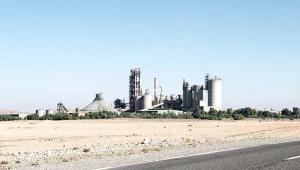Even in the twenty-first century, Africa – the cradle of mankind – conjures in the minds of many white people images of backwardness, disease, ignorance and poverty. There appears to be little appreciation of the fact that Africa is the second largest continent in the world and, with a population of about 1.2 billion, the second most populous.
Furthermore, this great continent holds 60% of the world’s strategic minerals, specifically, 65% of its cobalt, 18% of its gold, 95% of platinum, 42% of diamonds, 8% of natural gas, plus vast deposits of oil and uranium. The continent is blessed with abundant natural and mineral resources, as well as many rare elements and rich vegetation, an equable climate and 12 hours of sunshine for most of the year.
Naturally, this begs the question: why is Africa, so rich in resources, the poorest continent on earth? Ignoring simplistic and self-serving explanations from white racists for Africa’s sad and paradoxical situation, as an African who has devoted much time and thought to this problem and interviewed many informed people, I have concluded that the following are the sources of Africa’s predicament:
First, the slave trade, which operated from the fifteenth to the nineteenth century, led to a loss of an estimated 42 million people from Africa, draining the continent of many of its strongest and fittest.
Secondly, the colonial period from the nineteenth to the mid-twentieth century, although it led to the termination of inter-tribal wars and the introduction of law and order and education, also caused considerable damage to the self-confidence of the people, stifled economic development and choked off growth in entrepreneurial skills. Manufacturing was vigorously discouraged so Africa would not compete with factories in the countries of the colonial powers – France, Great Britain, Portugal, Spain, Italy and Germany. For centuries, even up to now, Africa has been primarily an exporter of raw materials and natural produce.
However, from the mid 1950s, as African countries began to win their independence there have been growing calls for western investment in the continent. It is recognised that to rapidly develop the continent’s vast resources, the financial investment and expertise (managerial, administrative and operational) from the developed nations is vital. For what is the value of diamonds or gold underground when the owners living above them endure a sad miserable life and cannot exploit them and add value to them? That is why the cry for foreign investment is loud and clear and makes eminent sense.
Vast fields are ripe for exploitation and development, among them solar energy, wind power, oil and other minerals, the processing of cocoa into chocolates and of palm oil into margarine, soap and other detergents.
Housing provides another rich opportunity for investment. For example, in Ghana the demand for housing is so great that a three-bedroom house can be sold for 2.5 times the construction costs, while other African countries endure housing situations far worse than those in Ghana.
The irrigation of the Sahara and Kalahari deserts into fruitful agricultural lands, following the recent discovery of water under the deserts, and the mechanisation of farming also deserve the attention of investors.
All the investment opportunities mentioned above are only the tip of the iceberg, considering Africa’s tremendous and huge untapped natural and mineral resources.
Of course, African governments realise that they have to create the relevant local economic environments to make their countries destinations of choice for foreign investors. There are obstacles: specifically the poor development of health, telecommunications, roads and other infrastructure. But as a former Ghana government minister, I can assure foreign investors that the final financial and other rewards are worth the challenges that they are likely to face.
British and American investors especially have a huge advantage in Africa, for in practically all the 55 countries that make up the continent, English is either the official language or is spoken by many of the educated people and those in command and control positions: the British or American investor or entrepreneur does not have to worry about this important issue when it comes to interacting with the local people.
Also, due to medical advances in recent years, diseases like malaria, cholera, sleeping sickness, typhoid fever, yellow fever, bacterial and viral gastro-enteric diseases can be easily managed so long as the expatriate takes the relevant preventative measures and medicines.
For the mutual benefit of both the foreign investor and the African landowner there is a strong case for investment. Finally, it needs to be stated that by investing in Africa one would be making enormous contribution towards lifting hundreds of millions of fellow human beings out of ignorance, deprivation and poverty.













